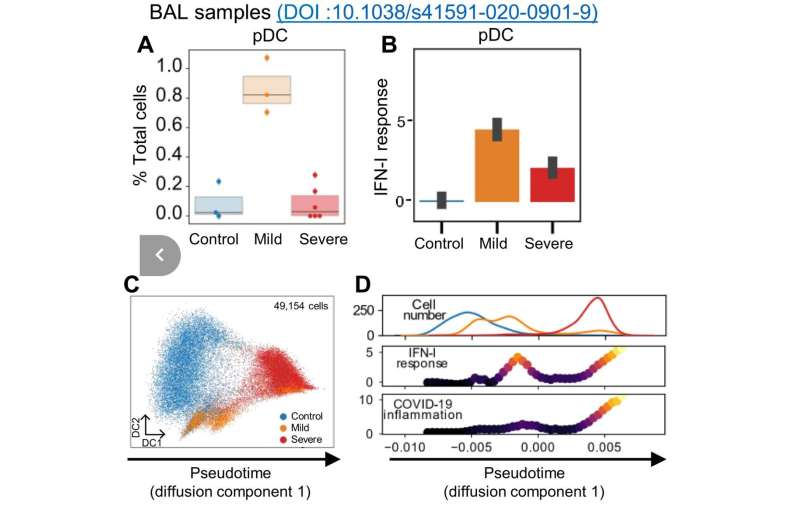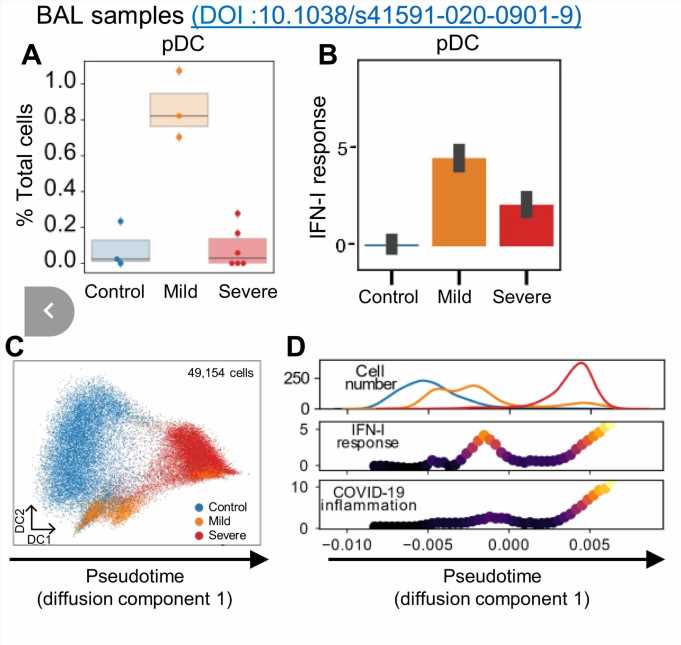
A new study by HSS Research Institute scientists identifies a mechanism by which SARS-CoV-2 induces the inflammatory response in COVID-19 patient lungs, so-called “cytokine storm”, that can lead to lasting tissue damage and poor patient outcomes. The lead investigator Dr. Franck J. Barrat and Dr. Lionel B. Ivashkiv at the Hospital for Special Surgery worked in collaboration with Drs. Olivier Elemento and Robert E. Schwartz at Weill Cornell Medicine (WCM) on this study, looking at lung tissue samples and bronchoalveolar lavage from COVID-19 patients.
In a study published September 9 in Science Immunology, the investigators outline what controls the cytokine storm by lung-infiltrating macrophages, as these cells are not efficiently infected by SARS-CoV-2.
Researchers found that an immune cell type, called plasmacytoid dendritic cells (pDCs), are infected by SARS-CoV-2 and produce interferons that can provoke epigenetic changes in the nearby macrophages in the lungs of patients. Hence, this priming of macrophages by interferons leads to their exacerbated response to environmental stimuli, inducing the cytokine storm in the lungs of COVID-19 patients.
This is surprising as interferons and pDCs have been demonstrated to protect patients infected by SARS-CoV-2—but this new research uncovers that they can also provoke damaging cytokine storms.
Source: Read Full Article
